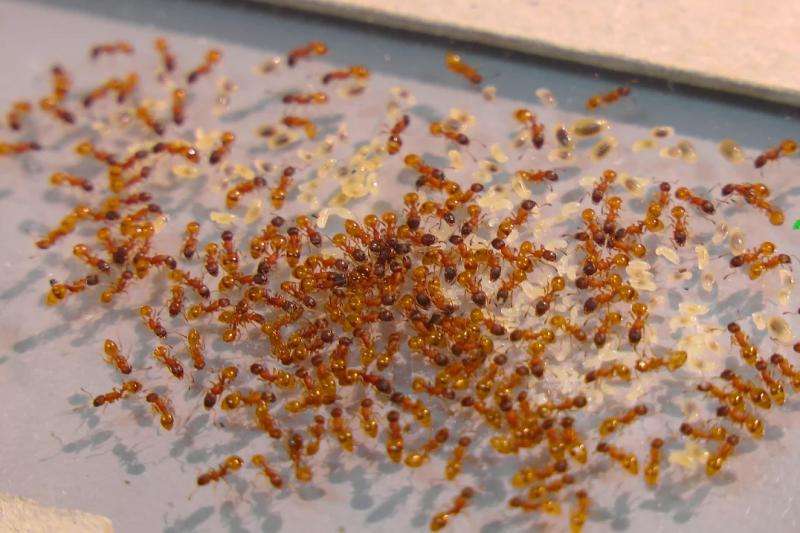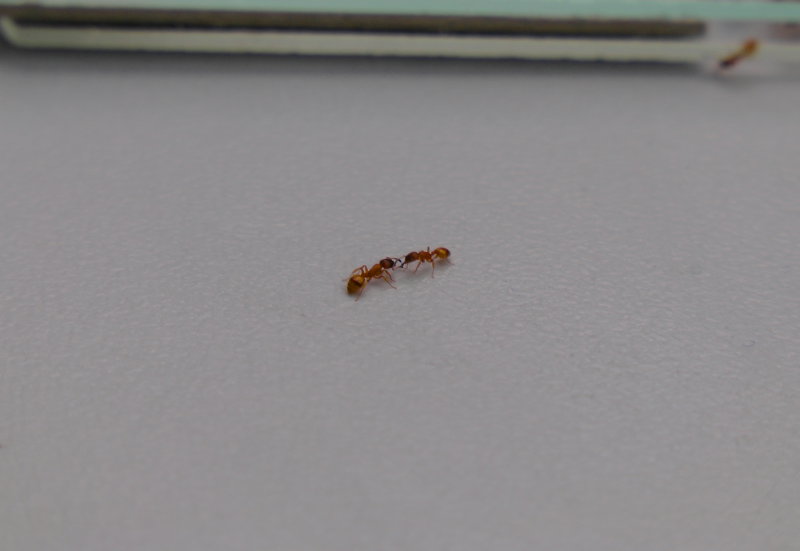A 'nervous system' for ant colonies? Colony responds to predation simulation as a 'superorganism'

Colonies of ants are incredibly complex, and at the same time intensely cooperative, so much so that they are often referred to as single 'superorganisms'. But to what extent do they actually behave as a single entity?
In order to answer this question, researchers from the University of Bristol subjected colonies of migrating ants to differing forms of simulated predator attack.
By targeting ants scouting at the periphery of colony activity, and workers within the very heart of the nest, they were able to show very different responses to predation depending on its location.
When scouts were removed, the foraging 'arms' of the colony were retracted back into the nest. However, when ants were removed from within the nest itself, the whole colony absconded, seeking asylum in a new location.
While the first of these scenarios could be seen as akin to burning your hand on a stove, the second is more of a 'house-on-fire' scare, and in each case the ants responded appropriately.

Thomas O'Shea-Wheller, a PhD student in Bristol's School of Biological Sciences and one of the authors of the study, said: "Our results draw parallels with the nervous systems of single organisms, in that they allow appropriate, location dependent, responses to damage, and suggest that just as we may respond to cell damage via pain, ant colonies respond to loss of workers via group awareness."

More information: 'Differentiated Anti-Predation Responses in A Superorganism' Thomas A. O'Shea-Wheller, Ana B. Sendova-Franks and Nigel R. Franks, PLOS ONE, 2015. dx.plos.org/10.1371/journal.pone.0141012
Journal information: PLoS ONE
Provided by University of Bristol




















